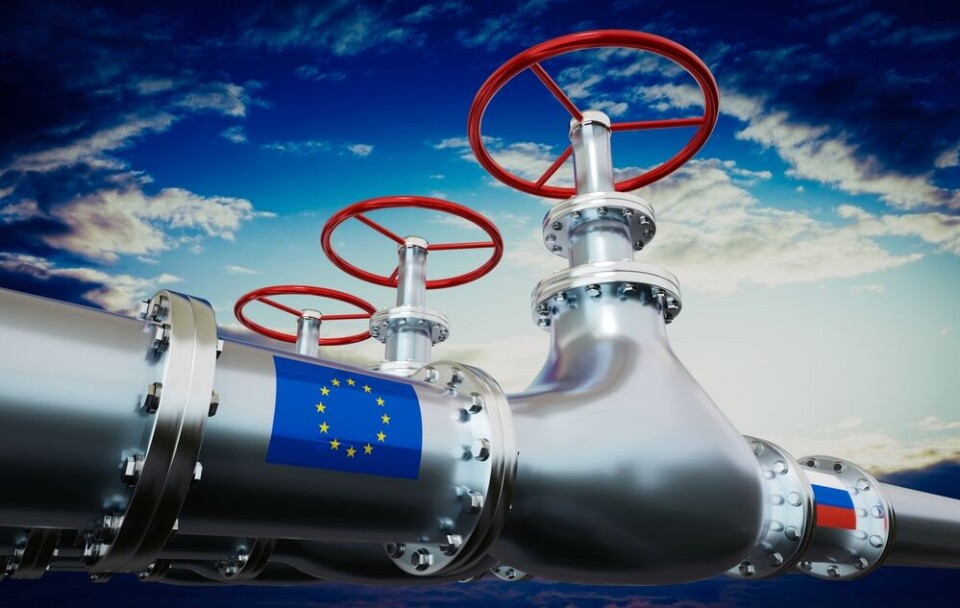-
Mysterious boom rattles residents in south-west France
Local community turns to social media for answers
-
France tightens reimbursement rules for flight delays or cancellations
New measures include mandatory mediation and new claim procedures
-
What snow conditions look like for skiers across French Alps and Pyrenees
Ski resorts are expected to get busier as school holidays begin this weekend
EU votes to reduce Russian oil imports by 90% before 2023
‘As Europeans, united and in solidarity with the Ukrainian people, we are taking new decisive sanctions,’ said French President Emmanuel Macron

The European Union is to stop 90% of Russian oil imports by 2023, as part of a new series of sanctions against the country as a result of the war in Ukraine.
The 27 EU countries confirmed the sanctions and fuel embargo on Monday, May 30.
They will reduce imports of Russian crude oil by 90% by the end of 2022, in a bid to limit funds being sent to Moscow, said European Commission president Ursula von der Leyen and President Emmanuel Macron, president of the European Council.
Russia will receive just €1billion from fuel per month as a result, instead of the current €10billion. This is significant, as Russia is currently spending €60billion per month on the war, said Thomas Pellerin-Carlin, Director of the Energy Centre of the Institution Jacques Delors, to Le Figaro.
The embargo concerns crude oil within six months and refined fuel products within eight months. This will happen via a gradual stop on imports of Russian fuel transported by boat, including two-thirds of European imports.
Until now, Hungary had blocked attempts to impose similar sanctions on Russia (the decision to impose sanctions must be unanimous).
The new sanctions allow a temporary exemption for oil provided by the Druzhba pipeline, a stipulation which led Hungary to lift its veto.
Hungarian President Viktor Orban asked for reassurance on his country’s energy security, in case the Druzhba pipeline, which supplies 65% of Hungary’s fuel, is eventually cut off. It wanted assurances that the country could benefit from oil transported by ship if needed.
Hungary also asked for €800million to adapt its refineries due to the change in fuel supply.
The supply via pipeline will be “discussed as soon as possible”, but no date for this has yet been set.
Ms von der Leyen said that the Adria pipeline, which also feeds Hungary via Croatia, could increase its capacity within 45-60 days, with investment, if needed.
Discussions are set to take place on the issue of stopping imports via the Druzhba pipeline in future. The northern branch of this pipeline serves Germany, Austria, and Poland, and the southern branch feeds Hungary, the Czech Republic, and Slovakia.
President Macron tweeted: “Russia has chosen to continue its war in Ukraine. Tonight, as Europeans, united and in solidarity with the Ukrainian people, we are taking new decisive sanctions. We have decided to stop importing 90% of Russian oil by the end of 2022.”
Russia has chosen to continue its war in Ukraine. Tonight, as Europeans, united and in solidarity with the Ukrainian people, we are taking new decisive sanctions. We have decided to stop importing 90% of Russian oil by the end of 2022.
— Emmanuel Macron (@EmmanuelMacron) May 30, 2022
Earlier in the day, Ukrainian President Volodymyr Zelensky had called on the EU to “stop their quarrelling” and adopt this sixth set of sanctions as soon as possible.
He said: “Europe must show its strength. Because Russia only sees strength as an argument. It is time that you are no longer divided but united.”
The sanctions also add around 60 more Russians to the EU black list, including the head of the Russian Orthodox church. They also exclude three Russian banks, including Sberbank, from the international finance system Swift.
The EU also approved a €9billion lump sum to Ukraine, in the form of a long-term loan with subsidised interest rates. Ukraine has calculated its need due to the war at €5billion per month.
Slight price drops in France
It comes as fuel prices dropped slightly in petrol stations across France last week. On average, a litre of unleaded 95 E10 was selling for €1.9293, a drop of 0.9 centimes. The week before, a litre of SP95-E10 exceeded the €1.93 euro mark.
The drop is more noticeable for diesel, at 2.4 centimes fewer per litre. A litre of diesel sold for an average of €1.8281 last week.
Related articles
Cutting off Russian gas: What is France's view and what consequences?
France should 'no longer need Russian gas within three to four years'
France passes decree to prepare for cuts to Russian gas supply
























